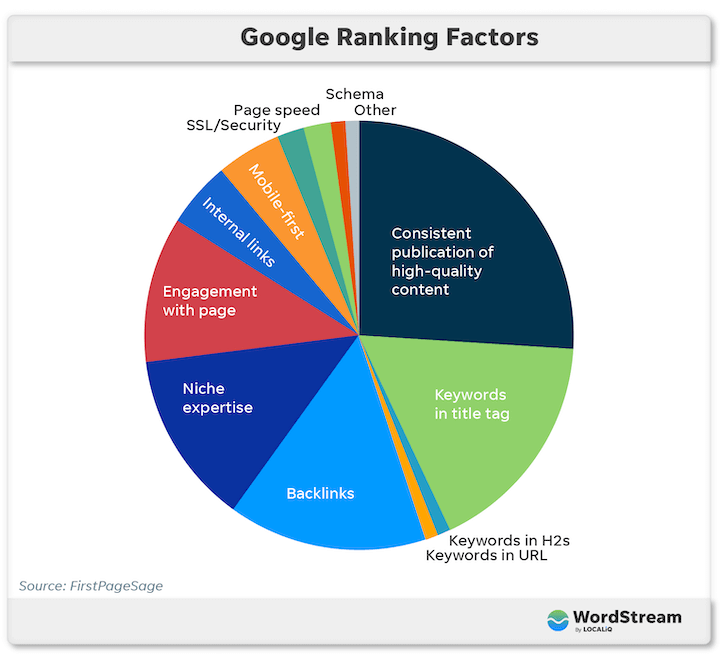![]()
Thank you for reading this post, don't forget to subscribe!
Unleash the secrets of SEO 101 and skyrocket your PageRank with these expert tips and strategies – don’t miss out!

Image courtesy of via DALL-E 3
Table of Contents
Introduction to SEO
In today’s digital world, where millions of websites compete for online attention, understanding SEO is crucial. SEO, which stands for Search Engine Optimization, is the practice of making your website easy to find and understand for both people and computers.
What is SEO?
Think of SEO as a roadmap for search engines like Google to navigate your website. By using specific keywords and optimizing your content, you can increase your chances of appearing higher in search results when someone looks for information related to your website.
Why Do Websites Need SEO?
Websites need SEO because it helps them stand out in the crowded online space. Just like you want your favorite book to be easily found on a library shelf, SEO ensures that your website doesn’t get lost among the endless pages of the internet. It’s like putting a spotlight on your digital presence for everyone to see.
Understanding PageRank
PageRank is like a popularity score Google gives to websites. It helps Google decide which pages are important and should show up higher in search results.
How Does PageRank Work?
Websites get a score from Google based on how many other websites link to them. If a lot of popular websites link to yours, your PageRank goes up. This means Google sees your website as more important and trustworthy, so it shows it to more people in search results.
Keywords: The Building Blocks of SEO
In digital marketing, SEO keywords are like magic words that help people find what they’re looking for online. When you type something into a search engine like Google, those words are the key to unlocking the treasure trove of information on the internet. Understanding how to use these keywords effectively can make a big difference in how easily your website can be discovered.

Image courtesy of www.marketingprofs.com via Google Images
What are SEO Keywords?
SEO keywords are simply the words or phrases that people type into a search engine when they’re looking for something specific. Let’s say you’re searching for information on the best pizza places in your area. You might type in “best pizza near me” or “top-rated pizza restaurants.” These are the keywords that search engines use to match your query with relevant websites.
Finding the Right Keywords
Choosing the right keywords for your website is crucial to improving your search engine ranking. You need to think about what your target audience is searching for and what terms they are likely to use. Tools like Google Keyword Planner can help you identify popular keywords in your industry.
Creating Content for SEO
Hey there! So, you know when you’re looking for something on the internet, and you want to find the best information or answer to your question? Well, that’s where good content comes in! Good content on a website is like having a treasure map that leads you straight to what you’re looking for. When your website has interesting and helpful stuff, people are more likely to visit and stay longer, which is super important for SEO.
Tips for SEO-Friendly Content
Now, let me share some simple tips with you on how to create content that not only people love but search engines, like Google, love too! First, use clear and easy-to-understand language. Avoid using complicated jargon that might confuse your readers. Second, make sure your content is organized into paragraphs and headings. This makes it easier for both people and computers to understand what your page is all about. Lastly, choose your words wisely. Remember those SEO keywords we talked about? Make sure to include them naturally in your content, but don’t overdo it. Just sprinkle them here and there to help Google understand what your website is about.
Making Your Website User-Friendly
When it comes to optimizing your website for search engines like Google, making it user-friendly is essential. A user-friendly website not only enhances the experience for visitors but also boosts your SEO efforts. Let’s delve into why user experience is key and how you can improve your website’s layout to make it more user-friendly.

Image courtesy of www.ilfusion.com via Google Images
Why User Experience Is Key
Having a website that is easy to navigate and visually appealing is crucial for attracting and retaining visitors. When users can easily find what they’re looking for on your site, they are more likely to stay longer, explore more pages, and potentially convert into customers. Additionally, search engines like Google favor websites that offer a positive user experience, as they want to provide their users with the best possible results. This means that a user-friendly website is more likely to rank higher in search engine results pages.
Improving Your Website’s Layout
One of the key elements of making your website user-friendly is having a well-organized layout. This includes clear navigation menus, logical page hierarchy, and a consistent design throughout your site. When visitors can easily locate the information they need and move seamlessly from one page to another, they are more likely to have a positive experience on your website.
Consider organizing your content into distinct sections or categories to make it easier for users to find what they’re looking for. Use descriptive headings and subheadings to guide visitors through your pages, and ensure that your website is mobile-responsive so that it looks and functions well on all devices. By focusing on improving your website’s layout and user experience, you not only enhance the overall quality of your site but also increase its chances of ranking higher in search engine results.
Link Building for Stronger SEO
When it comes to boosting your website’s visibility and ranking on search engines, link building plays a crucial role in strengthening your SEO strategy. In simple terms, link building is like having other websites vouch for the credibility and relevancy of your content by linking back to your site. Let’s delve into understanding what link building is all about and the dos and don’ts to keep in mind.
What is Link Building?
Link building is the process of acquiring hyperlinks from other websites to your own. These links act as signals to search engines like Google, indicating that your website is a valuable resource worth referencing. The more high-quality and relevant websites that link to your site, the more authority and credibility your website gains in the eyes of search engines.
Do’s and Don’ts of Link Building
When embarking on a link building campaign to enhance your SEO efforts, it’s essential to follow best practices to ensure sustainable and positive results. Here are some do’s and don’ts to help guide your approach:
Do:
- Focus on acquiring links from reputable and authoritative websites within your industry or niche.
- Create high-quality, engaging content that naturally attracts backlinks from other websites.
- Utilize guest blogging opportunities to showcase your expertise while earning valuable backlinks.
- Engage with relevant online communities and forums to establish relationships and gain link opportunities.
- Regularly monitor your backlink profile and disavow any toxic or spammy links to maintain a healthy link profile.
Don’t:
- Engage in link schemes or black hat tactics aimed at manipulating search engine rankings.
- Purchase links from low-quality or irrelevant websites, as this can harm your website’s credibility and ranking.
- Use automated tools or services to generate a high volume of backlinks quickly, as this can result in penalties from search engines.
- Neglect the quality of your content in favor of solely focusing on link acquisition, as valuable content is key to sustainable link building.
- Overlook the importance of diversifying your anchor texts to appear natural and avoid over-optimization.
SEO Services: Getting Expert Help
When it comes to optimizing your website for search engines, sometimes expert help can make a big difference. SEO services are offered by companies and individuals who specialize in improving websites’ visibility online. Here’s why and when you might consider getting help from SEO experts.

Image courtesy of www.wordstream.com via Google Images
Who Provides SEO Services?
SEO services are typically provided by digital marketing agencies, freelance consultants, and specialized SEO firms. These professionals have in-depth knowledge of search engine algorithms, keyword strategies, and content optimization techniques. They stay updated on the latest trends and best practices in the ever-evolving world of SEO.
What Can SEO Services Do for You?
SEO experts can offer a range of services to enhance your website’s performance in search engine results. They can conduct an SEO audit to identify areas for improvement, conduct keyword research to target the right audience, optimize your website’s content and structure, and build high-quality backlinks to improve your website’s authority.
Additionally, SEO services can help with technical aspects of SEO, such as website speed optimization, mobile responsiveness, and schema markup implementation. By partnering with SEO professionals, you can save time and resources while getting access to their expertise and tools.
Staying Up-to-Date with SEO
SEO is like a game where the rules can change. What worked yesterday might not work tomorrow. This happens because search engines, like Google, are always trying to show the best and most relevant websites to people. So, it’s important to keep up with the latest changes to stay ahead in the SEO game.
Learning about New SEO Strategies
One way to stay on top of your SEO game is to keep learning. You can follow blogs, watch videos, or even take online courses to stay updated with the latest SEO strategies. There are also SEO experts who share their knowledge through webinars and workshops to help you understand the new rules and trends in SEO.
Google’s Role in SEO
When it comes to SEO, Google plays a crucial role in determining the success of your website. Let’s dive into how Google affects your website’s SEO and the tools it provides to help you optimize your online presence.

Image courtesy of venngage.com via Google Images
How Google Finds and Shows Websites
Google uses complex algorithms to scan and analyze millions of websites to determine which ones are most relevant to a user’s search query. By understanding the keywords and content on your website, Google decides how high your website should rank in search results. This is why it’s essential to use relevant keywords and create high-quality content that aligns with what users are searching for.
Tools Google Provides for SEO
Google offers a variety of tools to help you improve your website’s SEO performance. Google Analytics, for example, provides valuable data on your website’s traffic, user behavior, and conversions. Google Search Console allows you to monitor and troubleshoot your website’s presence in Google search results. By utilizing these tools, you can gain insights into how users interact with your website and make informed decisions to enhance your SEO strategy.
SEO Myths to Avoid
When it comes to SEO, there are many misconceptions floating around that can lead website owners astray. Let’s debunk some common myths to help you navigate the world of search engine optimization more effectively.
Common SEO Mistakes
One common myth is that stuffing your content with as many keywords as possible will automatically boost your SEO. This is not true. Search engines like Google are smart enough to detect keyword stuffing, and it can actually harm your ranking. Instead, focus on using keywords naturally and strategically in your content.
Another mistake is believing that SEO is a one-time task. SEO requires ongoing effort and regular updates to remain effective. It’s not something you can set and forget. Regularly updating your content, monitoring your website’s performance, and staying up-to-date with SEO trends are essential for success.
SEO Facts vs. Fiction
One common myth is that the more backlinks you have, the better your SEO will be. While backlinks are important for SEO, quality is more important than quantity. Having a few high-quality backlinks from reputable websites is more beneficial than a large number of low-quality backlinks.
Another myth to avoid is that social media has a direct impact on your SEO ranking. While having a strong social media presence can indirectly benefit your SEO by driving traffic to your website, social signals themselves are not a direct ranking factor for search engines.
By avoiding these common SEO myths and focusing on proven strategies and best practices, you can improve your website’s visibility and attract more organic traffic. Remember, SEO is about creating valuable, user-friendly content that resonates with your audience and aligns with search engine guidelines.
Summary and Key Takeaways
The Big Picture of SEO
SEO, or search engine optimization, is all about making your website easy to find and understand for both people and computers. By using the right keywords, creating quality content, building user-friendly websites, and earning valuable links from other sites, you can improve your website’s PageRank and visibility on search engines like Google.
Final Tips and Tricks
As we wrap up our discussion on SEO, remember these key takeaways:
1. Choose the right SEO keywords that match what your website is about to help people find you online.
2. Create high-quality, user-friendly content that is interesting and helpful for your visitors.
3. Focus on improving your website’s layout and user experience to make navigation easy and enjoyable.
4. Build strong links from reputable websites to increase your site’s credibility and authority.
5. Consider seeking expert SEO services from professionals who can help optimize your website for better rankings.
6. Stay updated on the latest SEO trends and strategies to adapt to evolving search engine algorithms.
By following these tips and tricks, you can boost your website’s PageRank and enhance its visibility in search results, ultimately driving more traffic and achieving your online goals.
Get Your Free SEO Report Now.
GET YOUR WEBSITE Seo Report
About us and this blog
We are a digital marketing company with a focus on helping our customers achieve great results across several key areas.
Request a free quote
We offer professional SEO services that help websites increase their organic search score drastically in order to compete for the highest rankings even when it comes to highly competitive keywords.
Subscribe to our newsletter!
More from our blog
See all postsRecent Posts
- Boost Your Pagerank with Proven SEO Tips April 2, 2024
- SEO Cheat Sheet: Top Google Tips April 2, 2024
- Boost Sales with Google SEO Optimization April 2, 2024










